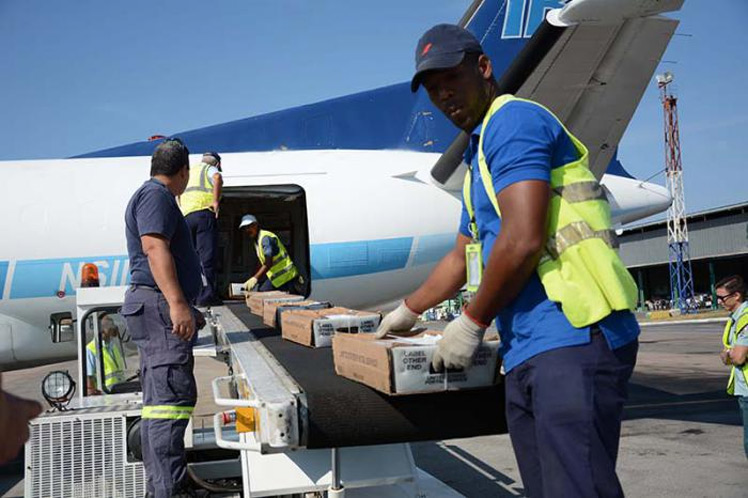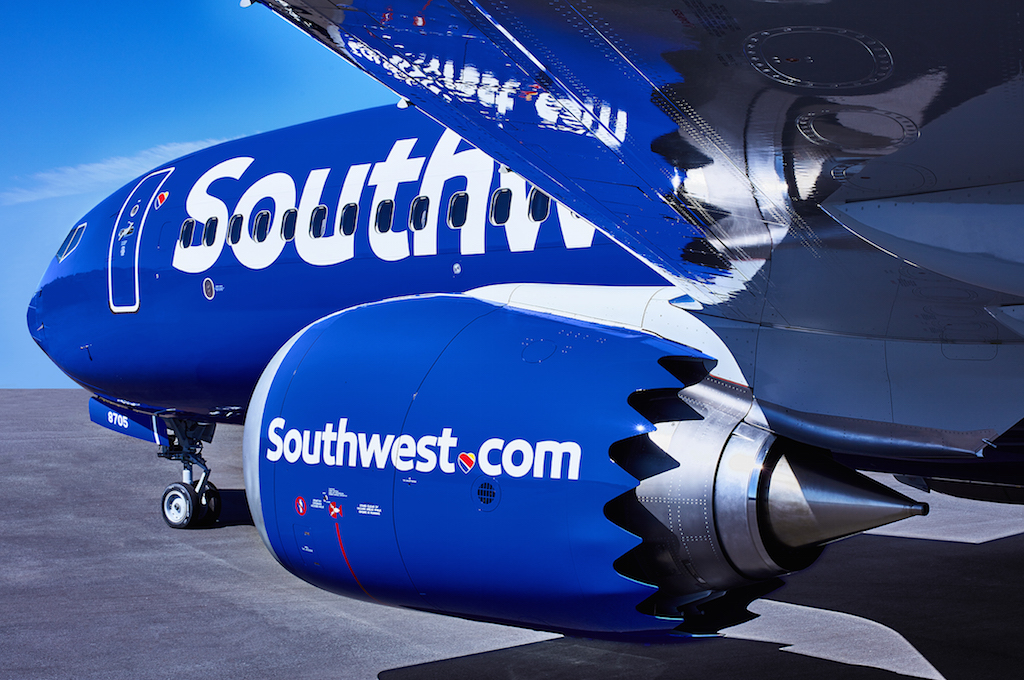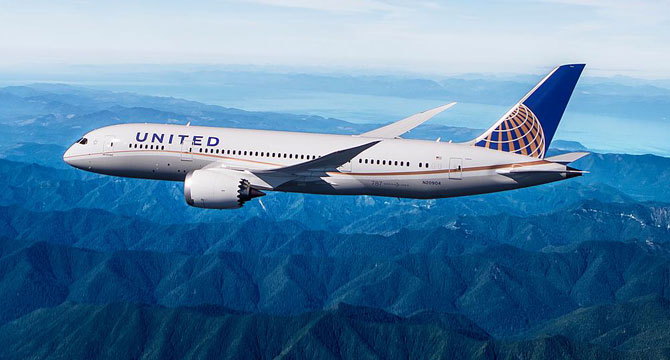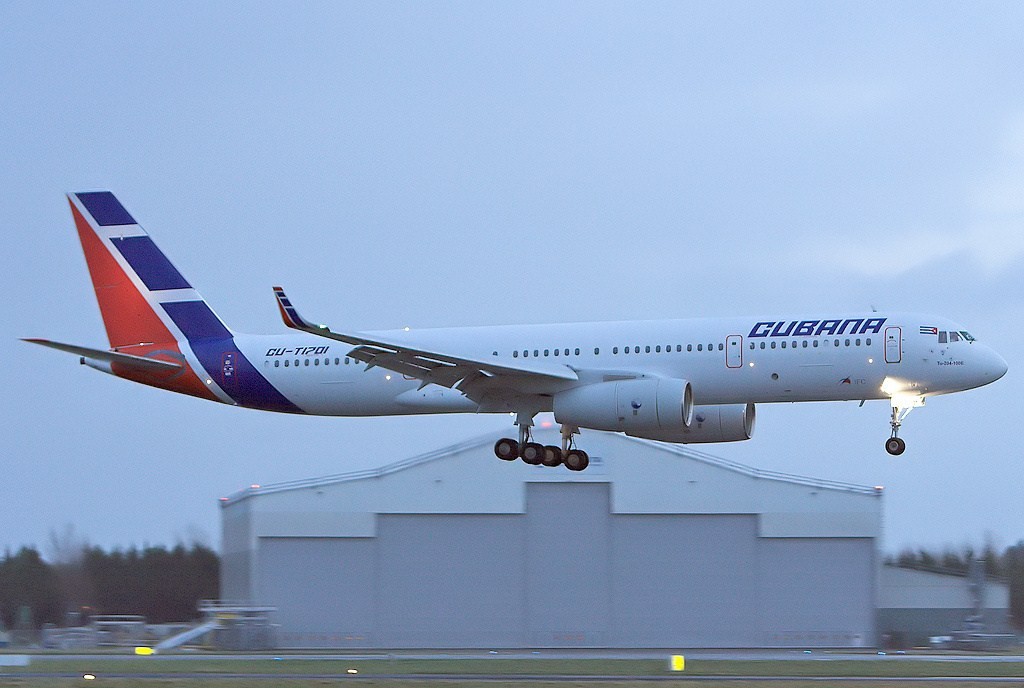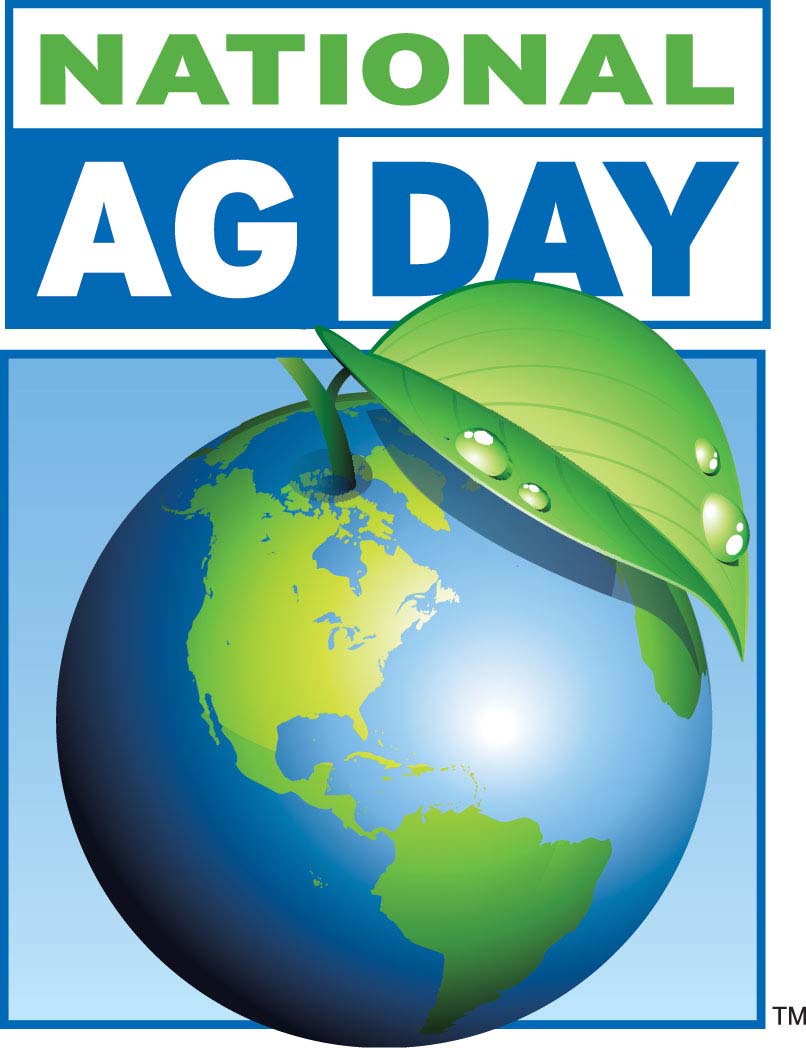THE WHITE HOUSE
Office of the Vice President
For Immediate Release
March 20, 2018
REMARKS BY VICE PRESIDENT PENCE ON NATIONAL AGRICULTURE DAY
Department of Agriculture
Washington, D. C.
THE VICE PRESIDENT: Well, thank you, Mr. Secretary, for that overly kind introduction. Thank you for your leadership of this great department. It's been almost a year since you started. And Secretary Sonny Perdue has already visited 34 states, made a remarkable difference for agriculture in America.
Would join me in giving another round of applause -- (applause) -- to this great Secretary from the great state of Georgia -- the 31st Secretary of Agriculture, Secretary Sonny Perdue. (Applause.)
To men and women of the United States Department of Agriculture, to all the distinguished members of Congress who support agriculture every day, to all of you who promote agriculture across our nation, and to the rising generation of leaders in agriculture who are here with us today -- and I hope you spotted my tie. Is that all right? I wore my FFA tie. (Applause.)
It's a great honor for this son of a farm state to be with you today during National Agriculture Week on National Agriculture Day. (Applause.)
And I bring greetings from a great friend to our nation’s farmers, producers, ranchers, and foresters -- a man who’s fighting for American agriculture every single day since Inauguration Day. I bring greetings this morning from the 45th President of the United States of America, President Donald Trump. (Applause.)
And on behalf of the President, the First Family, and our entire administration, Happy National Ag Day, one and all. This year marks the 45th anniversary of the first Ag Day, when the Agriculture Council of America organized a time for the nation to come together to, in their words, “recognize and celebrate the abundance provided by agriculture,” and to “encourage young people to consider career opportunities” in this all-American field.
And our administration is proud to lend our voice to this great vision. In his proclamation honoring this day, President Trump said that National Ag Day is a time to, in his words, “acknowledge the tremendous work ethic, ingenuity, determination, and perseverance that define generations of American farmers. Because of their efforts, the United States produces an abundant supply of food, feed, and fuel,” benefitting not only our nation, but the entire world. (Applause.)
For my part, all my life I've seen firsthand the difference made by the men and women who work in agriculture. I was raised in the heart of the heartland, in a small town in Southern Indiana, with a cornfield in my backyard. It's still there to this day.
And when I served in the Congress, I represented some of the best farmers in the world. We worked to advance their interests in my position on the House Agriculture Committee.
And when I was Governor of the Hoosier State, I liked to say that in Indiana, we did two things particularly well: We made things and we grew things. And things that grow can be found not just on the shelves and stores across the nation, but they’ve been scattered all across the wider world.
And President Trump knows the truth, and I know the truth, and all of you know the truth, as well: Agriculture is the essence of America, and it is the beating heart of a great nation. (Applause.) What you sow, our nation reaps. What you plant bears fruit for all across the world.
And you know the dignity of a hard day’s work. You model the grit that drives our nation forward, and people in agriculture always have. In a very real sense, you embody the virtues and the values that are at the root of American greatness.
As President Trump has said, “Our nation was founded by farmers. Our independence was won by farmers. Our continent was tamed by farmers. Our armies have been fed by farmers and made of farmers. And throughout our history, farmers have always… led the way,” and farmers will always lead the way in America. (Applause.)
It really is remarkable to think, on this National Ag Day, what American agriculture does and how advanced it is. America’s farmers have long led the world in innovation and achievement. And as this group knows better than anyone, working in American agriculture today is a far cry from your grandfather’s farm.
In fact, today in America, we grow and produce here on Earth increasingly depends on the satellites and the technology that we have circling the globe in outer space.
Last summer, you might know that President Trump relaunched the National Space Council. He gave me the great honor of serving as Chairman of it. Through the work of the Council, I've seen the advances that we have made in space, but I've also seen how American agriculture today uses the technologies of today and tomorrow to increase productivity, maximize crop yields, and prepare for extreme weather events.
Remote sensing allows for soil mapping so that farmers can plant the right crops in the ideal soil and better design irrigation systems. Weather satellites help farmers and ranchers monitor and predict weather patterns, and plan accordingly. And of course, GPS has revolutionized farming and allowed farmers to plant, cultivate, and harvest their crops with incredible accuracy, with that cutting-edge precision agriculture that we all know about.
In countless other ways, our farmers, ranchers, producers, foresters, and researchers, and engineers are enabling us to continue to feed ever more people, using ever fewer resources, proving once again that agriculture is the field of the future. Let’s give a round of applause to all the great innovators in American agriculture today. (Applause.)
And it really is a joy to be here today to be joined by so many who advance American agriculture every single day, including the National Association of State Departments of Agriculture and the American Farm Bureau Federation. Let's give both of these groups a round of applause. (Applause.)
And it’s a special honor to be joined by organizations that are passing on the great traditions of American agriculture to the next generation of farmers, ranchers, scientists. Let's hear it for FFA, 4-H, AFA, and MANRRS. Thanks for all you do to raise up a new generation of American agricultural leaders. (Applause.)
In fact, we just heard from one of those great rising leaders a few moments ago. How about another round of applause for Spencer Flood for doing a great job being a great example. (Applause.)
Finally, on this Ag Day, it’s an honor for me to be with so many dedicated public servants of the United States Department of Agriculture and these distinguished members of Congress who support them each and every day. Give the people at the department a round of applause. They're working every single day -- and these members of Congress. (Applause.) They're working every single day for American agriculture.
You know, more than 150 years ago, President Lincoln signed the bill that created this department, which our 16th President called “the people’s Department.” And so you've remained ever since. Because the work that happens in these halls touches the lives of every single American and every single American family.
Through the Food and Nutrition Service, you fight hunger in America by bringing the bounty of our nation’s farms to those who are struggling to put food on the table.
Through the Farm Service Agency, you provide loans, credit, and disaster assistance to the men and women who work in agriculture.
Through the Foreign Agricultural Service, you help America’s farmers sell their crops on the world market.
Through the Food Safety and Inspection, you ensure the quality of what Americans eat.
And through the Office of Rural Development, overseen by a fellow Hoosier, Anne Hazlett, you provide support. You can applaud Anne if you want. I'm awful proud of her. (Applause.) You support small businesses and communities, and help those struggling in the grip of drug addiction.
Through the Forest Service, you protect and conserve America’s most precious natural resources, and inspire the nation with your heroic efforts in fighting wildfires. Let's give the Forest Service a round of applause. It was a tough year last year with record wildfires in California. (Applause.)
And all across this storied department, at home and abroad, nearly 100,000 dedicated public servants advance the USDA’s long-standing mission. A mission that's summed up in the department’s motto, “Do right, feed everyone." (Applause.) I promise you, President Trump and our entire administration, and frankly, every American are all grateful for what you do. We really and truly are.
But I’m not just here to say thanks on this National Ag Day. I’m here today, on President Trump’s behalf, to assure all of you that we’re going to continue fighting every single day for the prosperity, and opportunity, and future of American agriculture.
As you all well know, as I stand before you today, it’s been a challenging time for America’s farmers and ranchers in recent years. Since 2013, net farm income has been cut in half. Today, the majority of American farm households are turning to non-farm work in order just to get the bills paid, and an average of 82 percent of income earned by farm households this year is expected to come from off-farm work.
That’s why, since day one of this administration, President Trump and our entire team have been working tirelessly to stand with our nation’s farmers, producers, ranchers, and foresters, and everyone involved in agriculture. As the President has said, in his words, in "every decision we make, we are honoring," and supporting "America’s proud farming legacy." And I promise you we always will. (Applause.)
But, you know, it's not just been words; it's been deeds. President Trump has been busy since the outset of the administration rolling back the heavy hand of government, which particularly puts a burden on people that farm the land. In fact, this President has repealed 22 federal regulations for every new federal rule put on the books. (Applause.) He’s actually canceled or delayed more than 1,500 planned rules -- more than any President in American history.
The President took decisive action last year to repeal the disastrous Waters of the United States rule to ensure that farmers and ranchers and every American can control the land that they possess and develop. (Applause.) The truth is that the freedom to farm, the ability to manage the land and be stewards of the land is at the heart of how we feed our nation, grow our economy, and create jobs.
But, you know, it’s not just been about rolling back federal regulations. Nearly three months ago, as all of you may have noticed, with the strong support of these Republicans in the Congress, President Trump won a major victory for our nation’s agriculture when he signed into law the largest tax cuts and tax reform in American history. (Applause.)
Now, while the President's tax cuts benefitted every American, in large way and small ways, it gave America’s farmers historic relief when it comes to taxes on their businesses.
First and foremost, we eliminated the death tax for nearly every American farmer so, as President Trump said, you can “keep your farms in the family.” In almost every case, the burden is gone. (Applause.)
We gave America’s farmers and ranchers an unprecedented opportunity to invest in their future, because for the next five years, farmers, like other business owners, can deduct 100 percent of the cost of every piece of new equipment they buy. That's real relief for people who face extraordinary input costs, in terms of the equipment that they use.
We also cut the corporate tax rate from one of the highest in the developed world -- 35 percent, all the way down to 21 percent -- opening the doorway for a more prosperous economy and growing agribusinesses. (Applause.)
We empowered particularly small businesses, which most farmers are organized as small businesses, to be able to deduct 20 percent of their business income.
And we cut taxes for working families, doubling the child tax credit; doubled the standard deduction, so American families will actually get their first $24,000 of income completely tax-free. That's real relief for working Americans, and it will help lift all the boats, including American agriculture, all across this nation. (Applause.)
So we’re cutting red tape, been cutting your taxes, but we’ve also been working to open up the world to American agricultural products like never before.
It is remarkable to think agriculture accounts for nearly one-tenth of our nation's economy, in large part because we export more than $100 billion worth of agricultural goods every year. In fact, every $1 billion in agricultural exports supports approximately 8,000 American jobs. But the truth is, we believe we’ve only scratched the surface.
We’ve already taken important steps to modernize this department to make it easier for American farmers to export what they grow and raise and produce. And we’re working with a friend of mine, a fellow Hoosier who’s here with us today, Ted McKinney, the new Undersecretary of Trade and Foreign Agricultural Affairs, to make sure that we open even more markets for American goods. (Applause.) I'm proud of the whole department, but I love mentioning these Hoosiers to you. (Laughter.) I really do.
You know, and President Trump is also working with the USDA and members of our administration to renegotiate existing trade agreements and reach new and better deals for the American people, American businesses, and American farmers -- deals that will bring a bounty into our farms, and ranches, and forests at every corner of the world.
Last year alone, we reached an agreement to expand American rough rice exports to Colombia. We made a deal, for the first time in over a decade, to sell American beef to China. And we reopened Vietnam to distillers and dried grains, and we’re just getting started. We're going to open up the world to America's agricultural goods. (Applause.)
And beyond trade deals, later this year, we’re going to work with all these great leaders of the House and Senate to pass a farm bill. As President Trump has said, we're going to pass a farm bill that delivers "for America’s farmers just as they work every single day to deliver for us.”
To ensure that America’s farmers can get their goods to market quickly and efficiently, at home and abroad, President Trump recently unveiled a plan to make historic investments, as well in our nation’s infrastructure. And working with these members of Congress, I'm going to make you a promise: The builder you elected as President of the United States is going to rebuild the infrastructure of America. (Applause).
Just over two months ago, the President took an important step to strengthen our infrastructure when he signed an executive order that will bring high-speed broadband Internet to our nation’s most rural areas -- a critical advance benefitting farmers and smaller communities.
And in the days ahead, we’ll continue to take action to rebuild the nation’s infrastructure, as the President said, to ensure that our rural communities have access to the best roadways, railways, and waterways, and the best high-speed Internet access in the world. On all these issues and more, you can know with confidence President Trump and our entire administration are going to continue to work tirelessly to advance American agriculture.
We’ll keep fighting to break down barriers for your success, to open up new opportunities for growth, and to ensure that you can continue to make the outsized contribution to our national life, that all of those represented here have made for generations past, today and for generations to come.
And on this National Agricultural Day, I can’t help but think of some words by one of my favorite radio broadcasters, Paul Harvey, and what he said to a gathering not unlike this one, four decades ago. He said with a smile, "On the eighth day, God looked down on his planned paradise and said, 'I need a caretaker…' Somebody willing to get up before dawn… work all day in the fields… and then go to town and stay past midnight at a meeting of the school board… Somebody who’d plow deep and straight and not cut corners… Somebody to seed, and weed, and feed, and breed and rake and disc and plow and plant… Somebody who would bale a family together with the soft strong bonds of sharing, who would laugh, and then sigh, and then reply, with smiling eyes, when his son says that he wants to spend his life 'doing what dad does.' So, God made a farmer." (Applause.)
Those words bless my heart because I grew up among farmers. We had a few cattle when I was growing up, a little side operation that my dad was involved in. I cleaned more than a few stalls in my life and chased a few stray cows, but I know what a farmer is, and Paul Harvey's words capture that. It's the contributions that farmers made that we remember, on this National Ag Day, go far beyond feeding the world. They go far beyond the enormous and calculated economic impact that farmers have on communities large and small.
I truly do believe the greatest contribution that farmers have made throughout the long and storied history of this nation has been to the character of the nation. I woke up this morning thinking about how many times in the Good Book we see the phrase, "consider the farmer." Because there's something about the virtues of working the land, of having to rely on the blessings of providence, of having to wait on the weather. Right? That the resilience and the faith that it takes, I think it's nurtured not only people in farming, but I think it's, in a very real sense, it's nurtured the character of our nation.
So as I close, I just want to thank all of you, from my heart, and from the hearts of the American people. To all of you who work in agriculture, whose labor and life’s work can be found in the food that we eat and so much more in the character of the nation, just thank you on this National Ag Day.
To all of you who support our farmers, our producers, our ranchers, our foresters, through the work done in this department and through private organizations so well represented here today, thank you for what you do every day.
And to all of you who are even now considering a career in agriculture and to all who've made the choice to work in this quintessentially American field, thanks for believing in America's agricultural future. We need more like you.
And as you prepare to all walk this path, particularly the youngsters among us, I'm just going to pray that you do so with confidence and with faith that God will continue to do as He's done throughout our nation's history. That He'll “send rain on your land in season." That He'll "bless all the work of your hands.”
And I close with confidence on this National Ag Day, with the strong support of these leaders in the Congress in both political parties who stand with agriculture every day, with the strong leadership of President Donald Trump in the White House, with the servanthood efforts of the people of this department and all these great organizations that stand with agriculture every day, and with faith in God. I know we will make America grow again. We will make America prosper again. And to adjust a phrase, we will make American agriculture great again. Thank you very much. (Applause.)
God bless you, and God bless the work of this great department. And God bless the United States of America and all of our farmers. (Applause.)


